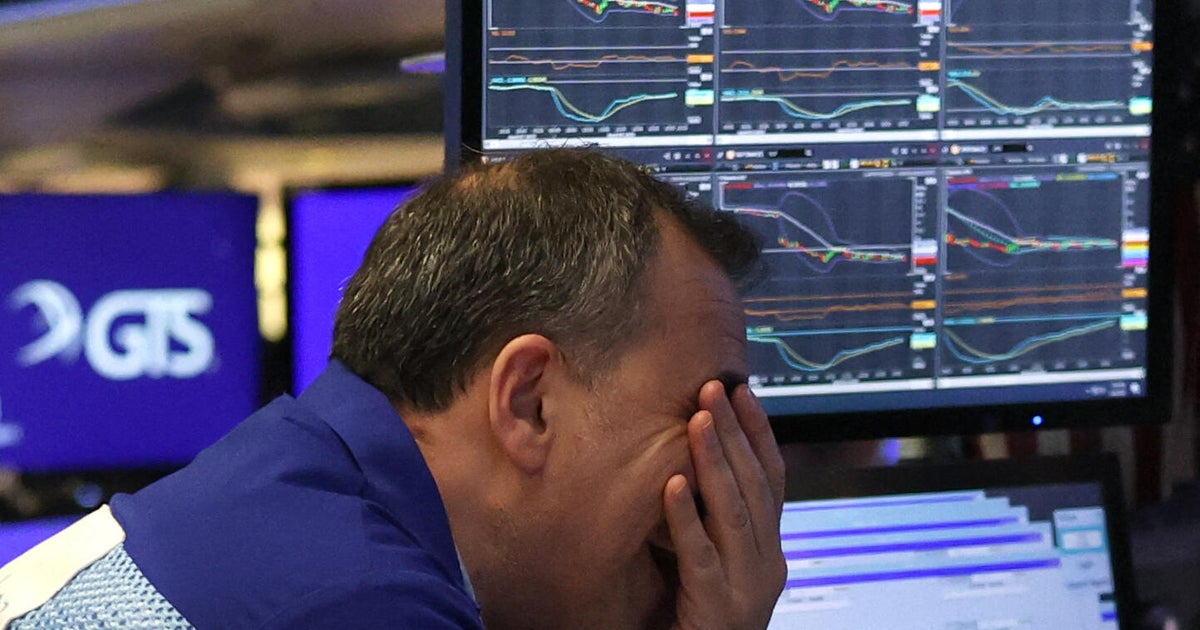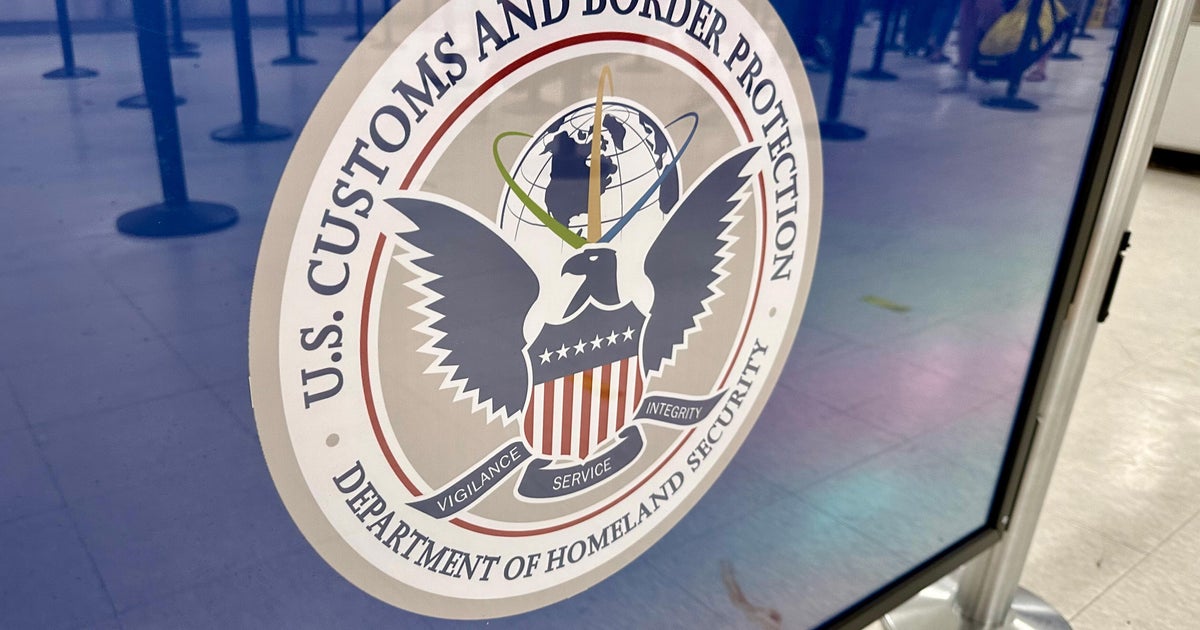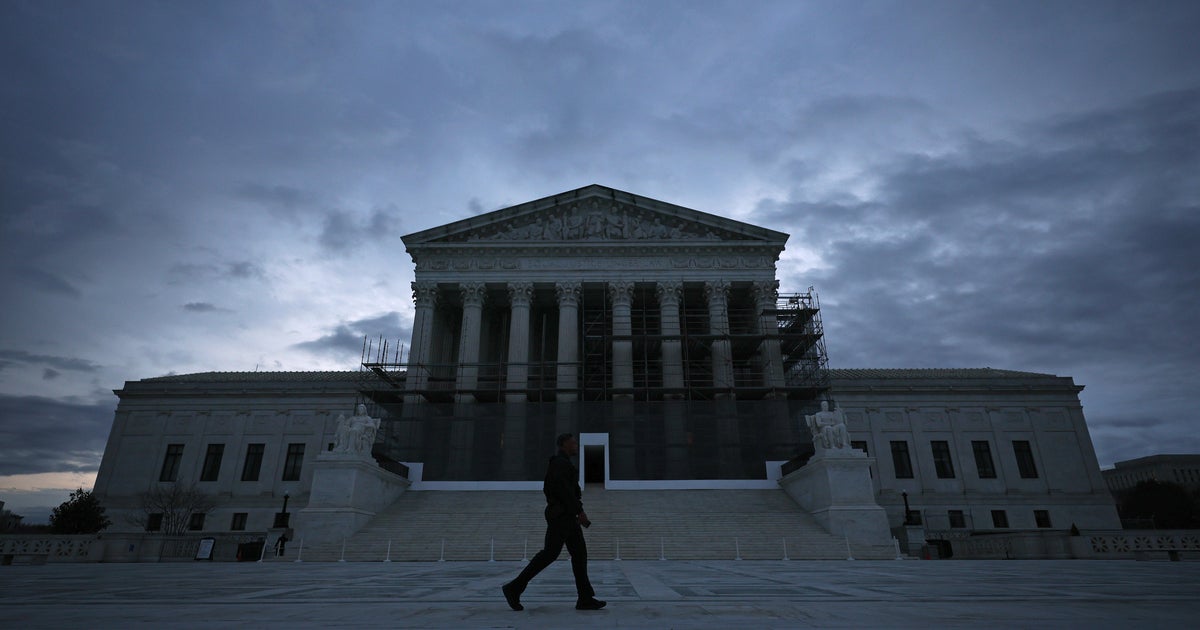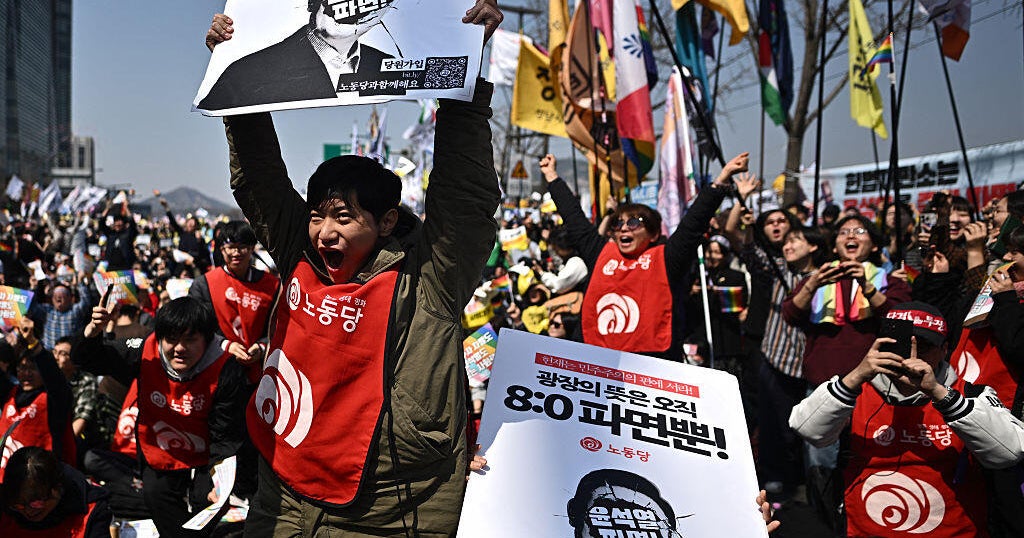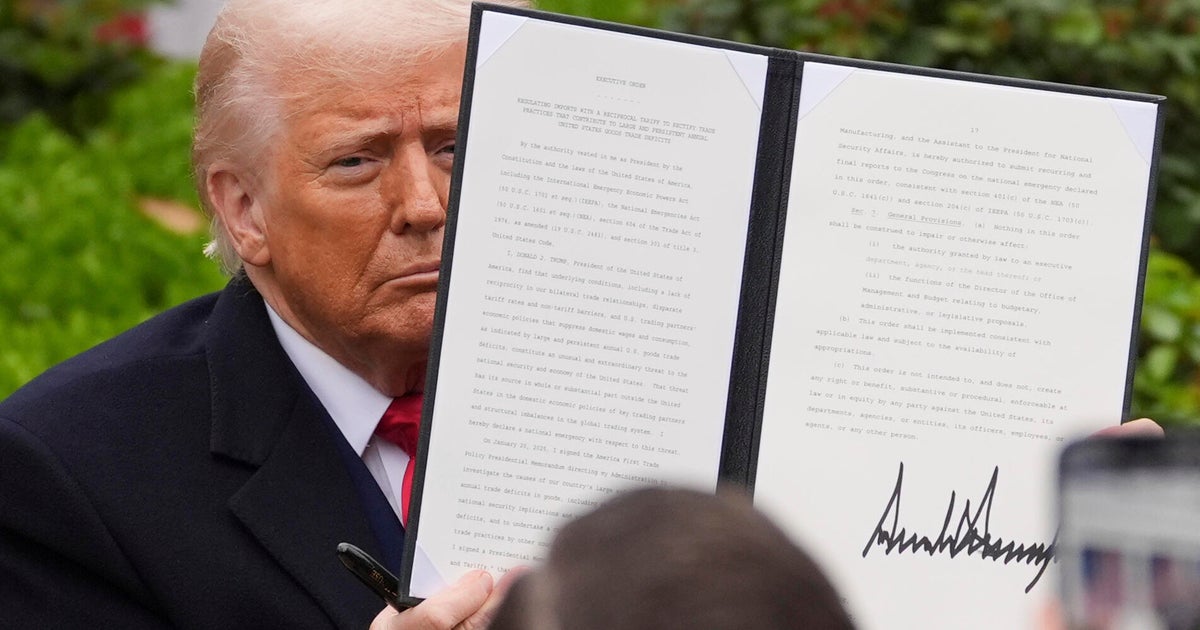CBS News Live
Financial markets ended a tumultuous week with a thud, as stocks tumbled for a second straight day on concerns about the economic fallout from new U.S. tariffs and the prospects of a global trade war.
President Trump’s announcement of steep tariffs on Wednesday shocked investors and sent economists scurrying to revise downward their forecasts for U.S. economic growth. Federal Reserve Chair Jerome Powell also warned that the levies — which include a 10% universal duty on all U.S. imports and “reciprocal” tariffs on nearly 90 countries — are likely to dent the economy.
“While uncertainty remains elevated, it is now becoming clear that the tariff increases will be significantly larger than expected,” Powell said in a speech Friday in Arlington, Virginia. “The same is likely to be true of the economic effects, which will include higher inflation and slower growth.”
The S&P 500 fell 322 points, or nearly 6%, to close at 5,074 — the largest one-day slump in the broad-based index since March 16, 2020, when it lost 12%.
The Dow Jones Industrial Average sank 2,231 points, or 5.5%. The Nasdaq Composite slid 963 points, or 5.8%. That put the tech-heavy index in a bear market, or when stocks drop at least 20% from their most recent high.
Tech stocks have flailed this week because of concerns that American tariffs on China — along with countermeasures from Beijing — will hurt the high-tech sector, which has been key to driving corporate profits.
The decline wipes out more than a year of stock market gains, taking the S&P 500 back to its levels in February 2024.
“The economic pain that will be brought by these tariffs [is] hard to describe and can essentially take the U.S. tech industry back a decade in the process while China steamrolls ahead,” Dan Ives of Wedbush Securities said in a report.
Solita Marcelli, chief investment officer Americas at UBS Global Wealth Management, told clients that the U.S. could tip into a recession later this year unless the U.S. moves to ease tariffs.
“In the near term, we believe the effective tariff rates could be higher still, and without President Trump taking active steps to reduce tariffs over the next three to six months, we are likely to enter a downside scenario, including a meaningful U.S. recession and lower equity markets,” he said in a research note.
The free-fall amounts to the biggest two-day drop for the S&P 500 and Nasdaq since March 2020, when the pandemic began, and has wiped out trillions of dollars in investor wealth.
Drops of this magnitude aren’t unheard of on Wall Street, but they’re rare. Over the last 25 years, the S&P 500 has fallen 4% in a single day 38 times, according to Adam Turnquist, chief technical strategist for brokerage firm LPL Financial.
Overseas markets also slid Friday. In overnight trading in Asia, Tokyo’s Nikkei 225 dropped 2.8%, while South Korea’s Kospi sank 0.9%. In European trading, Germany’s DAX lost 2%, France’s CAC 40 in Paris dipped 1.6% and Britain’s FTSE 100 shed 1.7%.
U.S. growth downgraded
Economists have downgraded their outlook for U.S. economic growth this year as Mr. Trump has piled tariffs on a growing list of countries, warning that the levies are likely to boost inflation. That, in turn, could reduce consumer spending, which accounts for more than two-thirds of the nation’s economic activity.
Import taxes are largely borne by businesses, which typically pass along part or much of those added costs to consumers. As a result, Americans could face higher prices for electronics, household appliances, cars, clothing, furniture, and food such as coffee and chocolate, according to economists.
“Looking ahead, higher tariffs will be working their way through our economy and are likely to raise inflation in coming quarters,” Powell said Friday.
According to the Tax Foundation, a nonpartisan policy research firm, the Trump administration’s tariffs could cost U.S. households more than $1,900 this year.
David Lefkowitz, head of U.S. equities at UBS Global Wealth Management, thinks U.S. trade officials will eventually lower tariff rates as they negotiate with their counterparts abroad. But that process is likely to take time, and the investment bank doesn’t expect a speedy reversal in U.S. tariffs. As a result, UBS economists have lowered their forecast for U.S. economic growth this year to less than 1%.
China strikes back
Investors are also nervously watching as the barrage of U.S. tariffs prompts retaliation from key trading partners. China on Friday said it will impose a 34% tariff on imports of all U.S. products starting April 10.
The Chinese Commerce Ministry also said it would implement tighter restrictions on exports of rare earths — materials used in products such as computer chips and electric vehicle batteries — as well impose trade sanctions on 27 additional U.S. companies.
“This is an aggressive, escalatory response that makes a near-term deal to end the trade war between the two superpowers highly unlikely,” analysts with Capital Economics said in a research note.
In more upbeat news for financial markets, U.S. employers added 228,000 jobs in March, far exceeding analyst forecasts. The nation’s unemployment rate rose slightly to 4.2%, versus 4.1% in February.
Yet while job growth was robust last month, experts say the government’s latest hiring numbers don’t reflect the impact of the Trump administration’s trade policies on the economy.
“For investors looking at their portfolios, it could have felt like an operation performed without anesthesia,” Brian Jacobsen, chief economist at Annex Wealth Management, said of this week’s downdraft in stocks.
The Associated Press
contributed to this report.
Alain Sherter is a senior managing editor with CBS News. He covers business, economics, money and workplace issues for CBS MoneyWatch.

